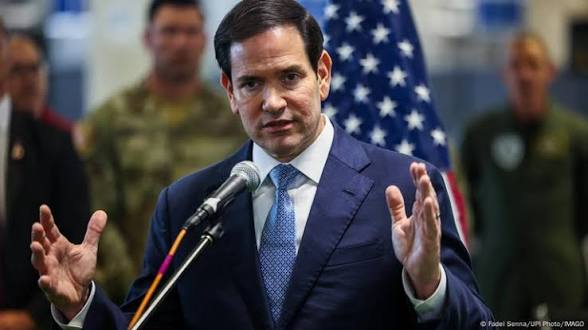
Top U.S. diplomat Marco Rubio shared hopes on Friday, October 24, of soon putting together an international force to police the ceasefire in Gaza, as Palestinian factions agreed that a committee of technocrats would run the post-war territory.
The Secretary of State visited Israel on the heels of Vice President JD Vance as part of an all-out effort by the United States to persuade both Hamas and Israel to respect the truce. Rubio said it was critical for the deal to create “the conditions for the stabilisation force to come in as soon as it possibly can be put together.”
Rubio expressed optimism for a durable end to the two-year Gaza war as he met with Israeli, U.S., and other Western forces monitoring the ceasefire from inside a converted warehouse in southern Israel. The deal, spearheaded by President Donald Trump, calls for an international force to oversee security following the ceasefire that ended the war sparked by Hamas’s October 7, 2023, attack.
Meanwhile, the main Palestinian factions, including Hamas, announced Friday they had agreed during a meeting to form a temporary Palestinian committee of independent technocrats to take over the running of Gaza. According to a joint statement published on the Hamas website, the committee would “manage the affairs of life and basic services in cooperation with Arab brothers and international institutions.”
The statement also urged a meeting of all factions to “agree on a national strategy and to revitalise the Palestine Liberation Organization (PLO) as the sole legitimate representative of the Palestinian people.” Hamas is not part of the PLO, which is dominated by its longtime rival, Fatah.
Hamas, which seized power in Gaza in 2007, has already made clear it does not wish to govern the post-war territory but has pushed back against the insistence that it disarm its fighters.
The arrival of an international security force is crucial as it may unlock reconstruction funds; U.S. officials vow none will go to Hamas-held areas. The troop-contributing countries, however, have yet to be confirmed.
Rubio confirmed that Israel would enjoy vetoes on the force’s composition, amid reports Israel has objected to Turkey’s participation. “There’s a lot of countries that have offered to do it. Obviously as you put together this force, it will have to be people that Israel is comfortable with,” he said.
Turkey, a NATO member, has been a strong critic of Israel under President Recep Tayyip Erdogan, while Indonesia, the world’s largest Muslim-majority state, has said it is ready to send troops. The United Arab Emirates has already been involved in ceasefire monitoring.
Rubio said the United States may seek a UN mandate for the force, as some countries need the world body’s imprimatur to deploy troops. However, he rejected any future role for UNRWA, the UN agency for Palestinian refugees, which Israel has banned from its territory.
The Trump administration has been increasingly firm with Israeli Prime Minister Benjamin Netanyahu, who in March brushed aside an earlier ceasefire and ordered a major new offensive. Israel is also still waiting for Hamas to return the remains of 13 of 28 dead hostages it promised to hand over.
Hamas said Friday it had received “clear guarantees” from mediators Egypt, Qatar, and Turkey that “the war has effectively ended.”



